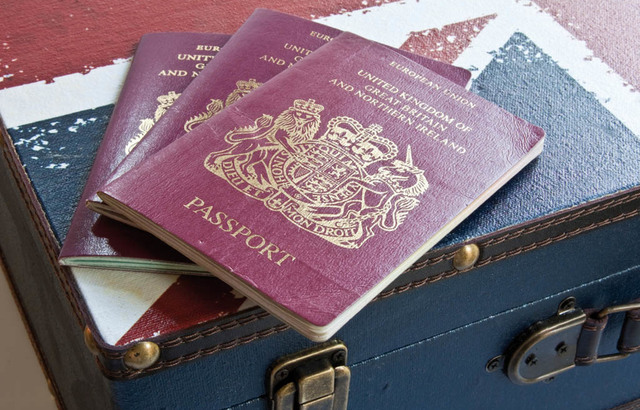The rise of home working has brought about a demand in nomad visas, which gives an individual the right to reside in a jurisdiction and work remotely via an overseas employment contract.
The visa itself will be valid for six-to-12 months and can often be renewed for additional years.
Since the shift in global working habits as a result of the pandemic, an increasing number of countries are now implementing these programmes, opening up their borders to ‘digital nomads’ who travel while working.
Most visas require you to be employed by a company that is based outside of your working location and there is usually a minimum monthly income you must earn to obtain a visa.
There are countries offering nomad visas in all parts of the world – Europe, Asia, Central and South America and the Caribbean. Many countries in eastern Europe have nomad visas in place, as well as Spain, Malta, Cyprus, Greece, with Portugal and Italy introducing legislation.
International Adviser spoke with Blacktower Financial Management, Blevins Franks and accountancy firm Mercer & Hole about the financial advice implications of nomad visas.
Advantages and disadvantages of nomad visas
John Westwood, group chairman at Blacktower Financial Management, said: These visas give workers flexibility and the opportunity to work in a variety of different environments whilst providing the host country with the opportunity to stimulate their economy.
“However, before making the decision to embrace the digital nomad lifestyle, it is important to consider the degree of stability that it offers; rejected applications for visas could leave remote workers unsure as to where they will live next when their current visas run out, resulting in considerable amounts of stress.
“This way of life can also be expensive due to the costs associated with frequent moves and the lack of constancy can make establishing plans for the future more challenging.”
Jason Porter, business development director at Blevins Franks, said: “A specific visa for a certain area of employment/self-employment, it is normally difficult to get a work visa unless an individual is effectively being ‘sponsored’ by a local employer in-country.
“Previously, it was often the case people would exploit the ‘gaps’ in non-working visa rules which prohibited employment through a local employer, but were silent on employment via another country.
“But this was never an ideal solution, and certainly over the past two or three years, the authorities have been much more alive to this rule-bending, and particularly, Spain and Portugal have been increasingly rejecting visa applications with any mention of remote working.”
Attractiveness
The nomad visa can be useful for many different advice clients around the world, but how attractive are they to potential UK expats?
Westwood added: “Despite the UK’s departure from the EU, most digital nomads are still available to UK citizens. The programme is likely to be very attractive to those looking to experience life in another country or culture, without wanting to commit fully or give up a stable source of income.
“As with wealth management and financial planning, there is no ‘one-size-fits-all’ solution for emigrating as an expat, and whilst the digital nomad visas might be perfect for some, a longer-term arrangement might be more appropriate for others.”
Blevins Franks’ Porter said: “Tourism revenue dropped significantly during the pandemic, and nomad visas can offer some nations a means to increase income from taxation and other social spending.
“The pandemic also proved that working from home wasn’t the biggest skive ever, and working from home in say Spain is not vastly different from doing it in Slough, apart from the sun. As wifi services across the world have improved, a wealthier class of digital nomad has grown and it is these who are often deliberately targeted, with higher end minimum income requirements.
“Nations and companies, particularly where geographical reasons mean the weather is less favourable, are overcrowded, with overly expensive real estate, can suffer from a gradual but long-term brain drain. This can lead to higher-educated and/or entrepreneurial people leaving the country to work in more favourable surroundings. Nomad visas mean those individuals can remain employed by that company, and who hopefully will return to that nation once the nomad visa can no longer be renewed.
“From a tax perspective, some countries will offer attractive regimes, whilst others insist you are part of the same system as local nationals. A negative would be that in the main, you will be required to have a certain level of minimum monthly income and have to take out private health insurance to cover you and your family.”
Financial planning issues
Life of a digital nomad sounds rather exciting – but unfortunately there will be some financial planning issues that need to be sorted out before clients look towards the nomad visa.
Blacktower’s Westwood said: “Moving from country to country under multiple Nomad Visas can result in complications in tax implications and liability. Whereas some countries might permit you to pay tax in your home country for short-term stays, others might require you pay tax whilst living and working there.
“It is also likely to have an impact on your UK pension as your annual contributions might be limited and the tax relief will no longer be applicable after five years abroad.
“It is essential to establish a sound financial plan to secure a stable financial future when you return to your home country or settle somewhere new, the assistance of an experienced financial adviser can help you align your current circumstances and future objectives.”
Porter added: “As the majority will require your residence in the state concerned for a minimum number of days, and that number will generally coincide with tax residence, then you will be taxable as a resident of that state on a worldwide basis. There may be a specific tax regime for those with nomad visas, or you may have to integrate into the local tax and financial system.
“There will be income tax, social security, capital gains tax, succession law, and estate tax consequences because of this. You will also need to be aware of any wealth tax consequences.”
Tax understanding
Tax planning is a big part of an expat’s life, and this is no exception for digital nomads.
Liz Cuthbertson, partner at Mercer & Hole, said: “If a person leaves the UK to go abroad to work, in addition to the legal requirements, tax advice should always be sought both in the UK and in the other country to avoid unexpected tax outcomes.
“The UK has specific rules about UK residence that determine whether or not a person is resident in the UK for tax purposes. If you have been in the UK for 183 days or more in a UK tax year, you will automatically be resident for the year.
“Even if you are spending much less than 183 days in the UK in the tax year, you could still be UK resident under the sufficient ties tests. These look at specific connections a person has with the UK including home, family, work and day count in the previous tax years.
“It is important to understand what defines a home for this purpose under the statutory residence test rules. A family tie will apply if the nomad has a UK resident spouse or dependent children. A work tie applies if 3 hours or more work is carried out in the UK on at least 40 days of the year. If the nomad was physically present in the UK for at least 90 days in the tax year prior to departure, they have a 90-day tie.
“If a person is UK tax resident, they will be liable for UK income tax on their world-wide remuneration. If he is not UK tax resident but carries on duties in the UK, they will still generally be liable to UK income tax on at least the part of his remuneration related to his UK duties.
“Persons employed and living in the UK will usually also be subject to national insurance on their salaries though there are rules for multi-jurisdictional working and also temporary residence to ensure one only pays social security in one country.
“Even if a person becomes non-UK resident, the tax position in the host country should also be considered. Each county will have its own rules to determine whether a person is resident or taxable there and a person’s earnings could be taxable in the host country under the local rules.
“If the nomad is still also UK tax resident, then it becomes even more complicated because we need to consider whether there is any relief from potential double taxation.”
Surge
They may be difficult clients in terms of their financial planning and tax complications, but should advice firms expect a surge in digital nomad clients?
Porter said: “Working from home on a digital basis is now accepted and relatively easy to do, without the kinds of administrative and technological difficulties there would have been even five years ago.
“In the modern, global world we now work in, doing this from another country is not any more difficult than doing it from a home that is say 50 miles from the office you previously used to attend Monday to Friday.
“The fact this may also has the added benefits of much nicer weather, lower property prices, opening one’s mind to new cultures and perhaps a better work-life balance, should mean this will be an area of financial advice that requires new, flexible solutions, as the individuals concerned may not be long-term residents, may move from jurisdiction to jurisdiction, etc.
“But there will also be a significant number of UK nationals, perhaps those at a more managerial level or business owners, who were already planning to retire abroad to the sun, who can now see a real opportunity to do this a few years earlier, and simply carry on working via a digital nomad visa until they hit their chosen retirement date.
“If the particular country and visa concerned has additional tax breaks, then this can be factored into their ongoing financial planning, as well as their overall wealth position at retirement.”








